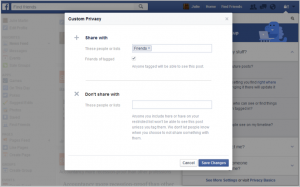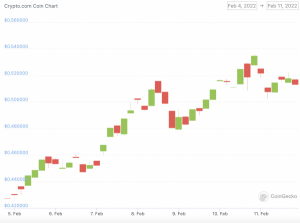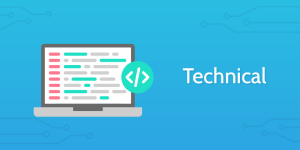By Mita Mallick
As we scroll through our social media feeds, news of layoffs continue to dominate the headlines: “Thousands at Meta, Twitter, Salesforce lost jobs this week—the shock could ripple through the economy for months” and “Mass Layoffs Are Happening at Amazon” and “Disney Plans Layoffs, Rigorous Review Of Spending & Hiring Freeze.”
This won’t be the last we hear of layoffs. Companies will continue to prioritize profitability over workers. Unfortunately, our friends may be searching for new roles in the new year.
As friends have shared with me their layoff news, I am reminded of the two times I have been laid off in my career. Both times, my layoffs were painful and unexpected.
During those difficult times, I had some friends genuinely rally around me to do their best to help. I had other friends who had great intentions, but in the end, weren’t as supportive as they intended to be. In some instances, their lack of responsiveness, empathy, and awareness, unknowingly added to the pain and hurt I was feeling from losing my job.
So now, I try to support friends who have been laid off. Here are five ways to offer your support:
Ask them what they want to do next
When I was laid off the first time, friends introduced me to contacts without even asking me.
While I was looking for roles in marketing, one friend introduced me to her aunt who was a radiologist. Another friend introduced me to her cousin who owned a jewelry shop in town. While the introductions were well intentioned, neither introduction helped me meet more individuals who had access to marketing roles. Ultimately, these friends didn’t make introductions with my end goal in mind.
When friends reach out for help after being laid off, ask them, “How can I help support you?” and “What do you want to do next?”
Some may be relieved and want the time off. Some might want to race right into the job search, and some might want to switch careers. Don’t assume what friends want to do; ask them so you are better positioned to help.
Offer support with their r´esum´e or LinkedIn profile—but only if you can help
“Send me your r´esum´e, I’ll take a look at it” or “I can help you with your LinkedIn profile” were offers I received from a few friends. Yet, these friends never had time to actually review my r´esum´e and give me critical feedback. These friends also never followed up on their LinkedIn offer, because, frankly, none of them really had the expertise to upskill me (or even themselves) on LinkedIn.
If you don’t have time to review someone’s r´esum´e, consider sending your own as an example for them to review. Or provide key tips like “Ensure you have bullets with measurable results” or “Tailor your r´esum´e to include keywords included in the specific job description.”
And if you don’t have the time to review their LinkedIn profile, provide key tips like, “Make sure your headline is more than just your job title” and “Include a picture and relevant skills and work experience.”
If you don’t have that much expertise on LinkedIn, recommend they follow individuals who have strong followings on the platform.

Help them create a list of target organizations
“Just go on my LinkedIn and see who I am connected to, happy to make an introduction to that company,” one friend offered. I started scrolling through her contacts, only to find her connected to hundreds and hundreds of people. When I approached her about certain contacts, she laughed and said, “Oh I actually don’t know that person. I wouldn’t be able to make an introduction.”
Don’t send someone to your LinkedIn profile asking them to scroll through hundreds of connections, including some who you may actually not know. This can unintentionally make more work for your friend.
Instead, help them create a list of target companies they would want to work with. Review the list with them and see if you, or anyone you know, may know someone at one of those companies and be able to make an introduction. Even if there aren’t openings at the company at the moment, it could be an opportunity for an informational interview.
Follow up on promised introductions
“I’ll introduce you to the CMO of one of the fast-growing beauty companies, he’s a client and a friend,” I remember one friend saying to me. She had offered this kind gesture without my even asking. “He’s growing his team, and you would be a strong addition.”
For three months, I waited in anticipation for this introduction. I followed up every few weeks, asking if she needed anything else from me to make the introduction. The introduction never happened.
One of the most hurtful things I experienced after being laid off was friends promising introductions and never following through. If you don’t have time to make the introduction, or you don’t actually know the person, don’t promise a connection you can’t facilitate.
Also, don’t give away someone else’s time without asking them. Maybe the individual you want your friend to meet doesn’t have the time right now. Offer introductions you can actually make—and ones that you intend to follow-up on.
Be there for the lows—not just the highs
“Oh sorry.” That was the response one friend sent me when I told him I didn’t get a job I was a final candidate for. He quickly changed the topic and didn’t want to talk about my being rejected anymore. It left me feeling hurt and unsupportive.
On the other hand, I had another friend who sent me a Starbucks gift card and a kind note saying she was rooting for me and that this wasn’t the job for me. And she was right! My job was still out there, waiting for me.
It’s easy to be there for the highs. One of the best texts you can receive is when your friend who has been laid off tells you they found a new job. It’s harder to be there for the lows and the journey for your friend to find and start their next chapter. Be the support system your friend needs throughout the entire process. Your friendship will be stronger for it.
Mita Mallick is a diversity and inclusion leader. Currently, she is the head of inclusion, equity, and impact at Carta.
(19)
Report Post







